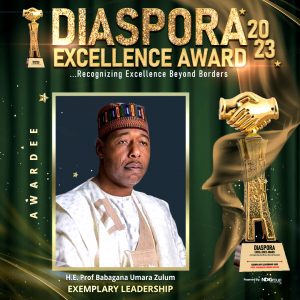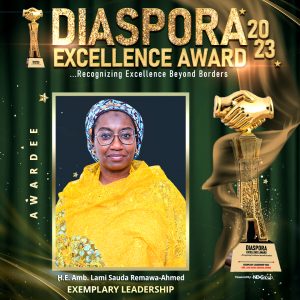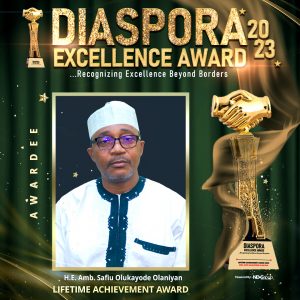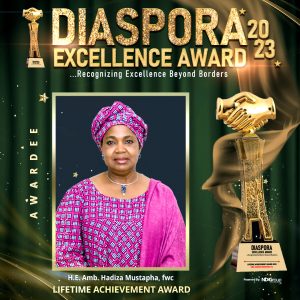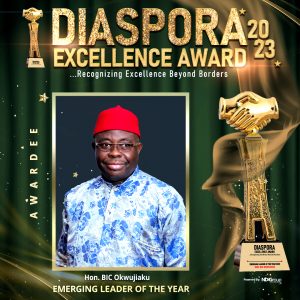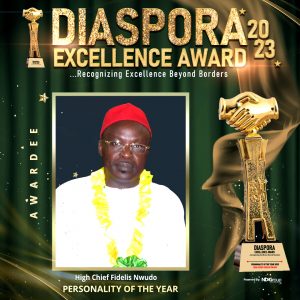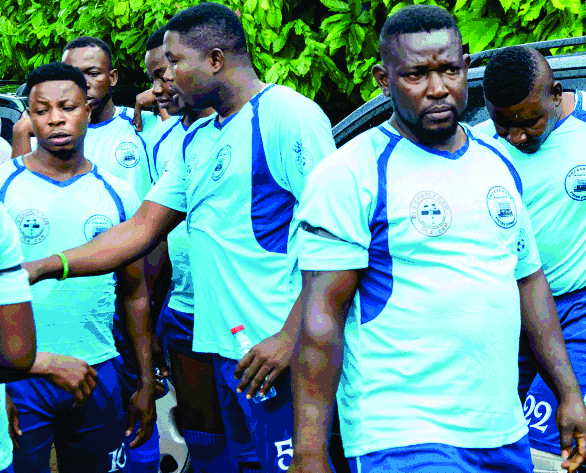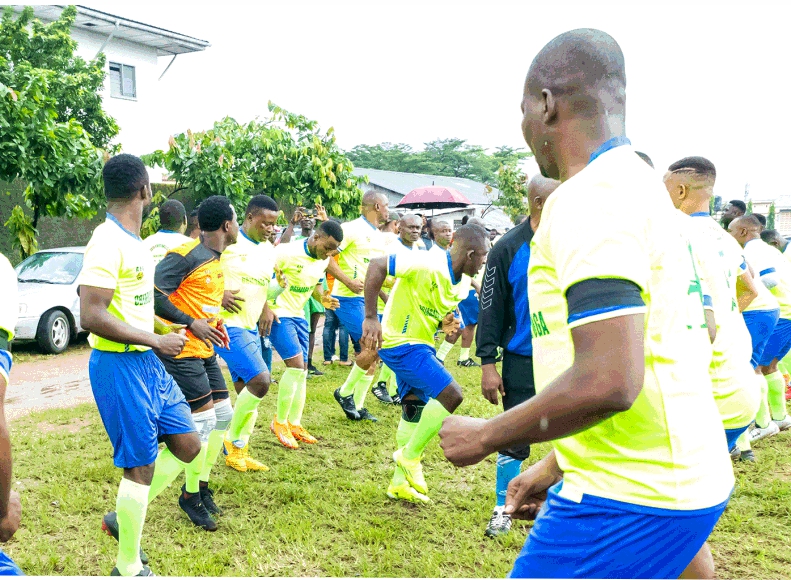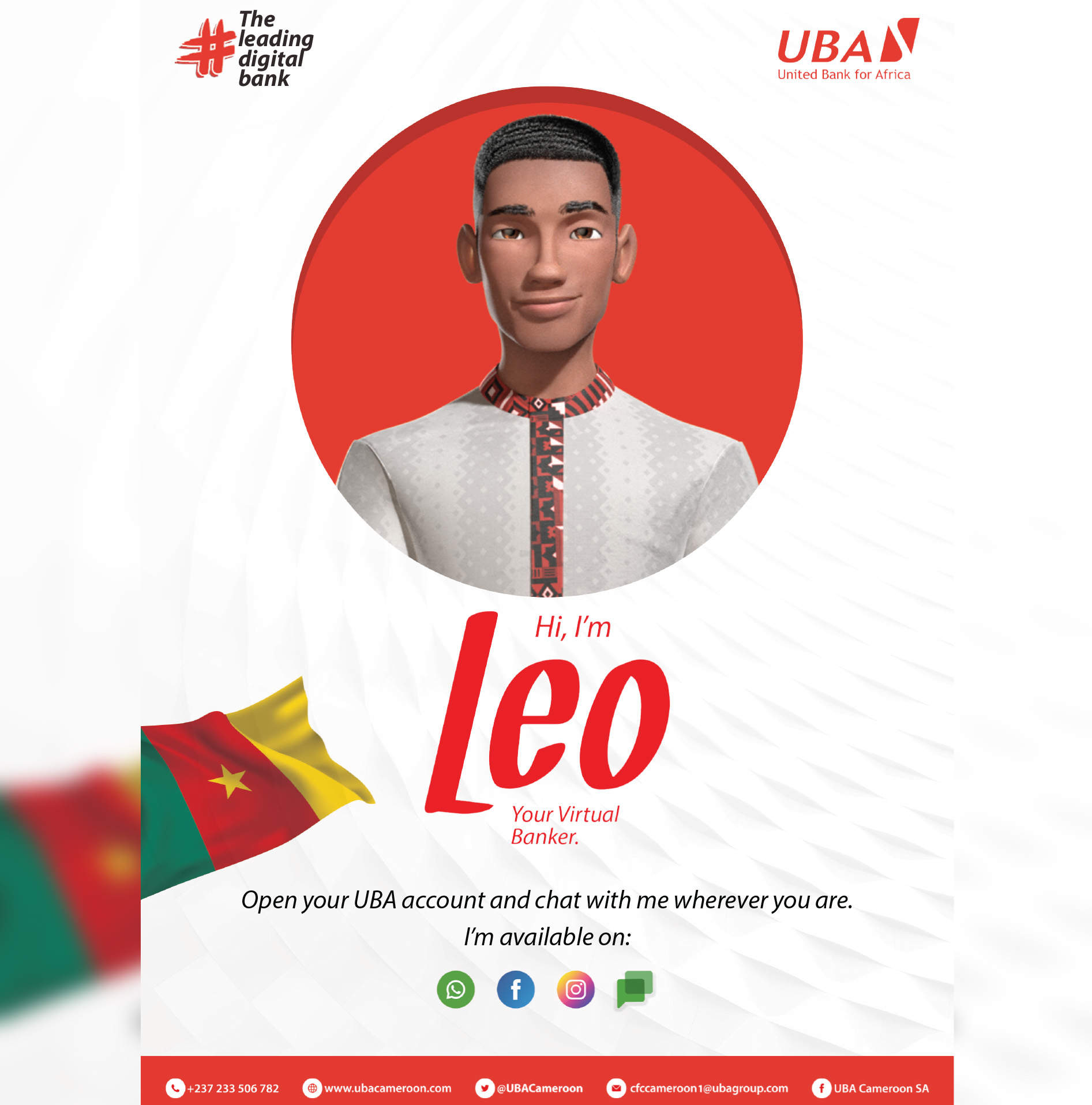The Managing Director/Chief Executive Officer of the UBA Cameroon, Jude Anele, a seasoned banker whose depth in the industry has over the years earned him international appeal. In this interview with a team of Naija Diaspora Magazine, he dwells on the operations of the UBA and the bank’s relationship with the Cameroon public.
Excerpts:
We want to congratulate you and the bank on your key contribution to the construction of stadia for the African Cup of Nations that just wrapped up. What motivated you to be part of this expensive venture?
As you may know, UBA is known as Africa’s global bank, it is also a pan-African bank. The UBA group chairman is also a pan-Africanist himself. One thing also is that in all the 20 countries where UBA operates, we are local in these countries, we are not just a foreign bank, we are local and indigenous in every part of our operations.
We seek the dividends, potentials of the countries where we operate. Therefore, in keeping with our policy and focus for developing Africa, in terms of infrastructure, UBA believes so much in Cameroon, and we believe that joining hands with the government can actually take Cameroon to a greater height.
This was the real motivation behind the financing of the AFCON Olembe stadium rated as one of the best in Africa. It remains a major achievement as Cameroon incidentally hosted the AFCON last in 1972, and this is 50 years after, and for us in UBA, Cameroon remains a grand event that needs to be supported and make a huge impact.
It was also a big opportunity for Cameroon to display its potentials to the world and I am happy it went successfully. So, I also congratulate the government of Cameroon for giving the African continent a memorable event. We are proud to associate with the people and government of Cameroon. And it is something UBA will like to replicate in the coming AFCON.
In close to two years as MD/CEO of UBA Cameroon, you have championed many initiatives to empower and support the local economy. What inspires this and how successful have these been?
In terms of my career history, I have focused more in the retail space, especially individuals and SMEs. They say SMEs, Small and Medium Enterprises actually constitute the engine room of any economy because they actually offer the highest level of employment in all economies; in terms of every economic sector or industry, at the heart of it, the critical middle is where SME exists.
However, why many sub-Saharan Africa countries struggle is that the SMS sector is a challenged space. It is not a well-funded sector because it is not well structured. If we are to transform this, then we will be directly transforming the economy of the particular geography like Cameroon.
Let’s take Cameroon for example, a country rich in primary products like crude oil, cocoa, coffee, wood and others but we find out that every day if you check the major roads, you will see trailer loads of wood heading to the port to be shipped out of the country. This is the same thing for cocoa, coffee and other primary products. Very little value is added here.
Therefore, you will ask yourself, the price of raw cocoa in the international market fluctuates, but the price of chocolate does not, so the people that are actually transforming the cocoa thus adding value to the chocolate, are those making the most profit. So why can we not produce other secondary products with the cocoa that adds value before exporting them? Statistically, if we take one step forward by processing the cocoa bean into a paste, it has already added 30% value to the product.
It is for this reason that we are working with the Ministry of Commerce and the Ministry of SMEs to help the SME segment that takes care of value addition for cocoa, coffee, wood etc.; to provide machinery that will help in the transformation of these local products. Not only big companies should handle this, SMEs across the country closer to the grassroots can be empowered to carry out transformation and this will change lives for thousands. We need to promote more on the cottage industry, which is what UBA is trying to do. We are also working with the Ministry of Youth Affairs because as you all know, the Tony Elumelu Foundation (TEF) focuses on entrepreneurship a lot.
We are trying to create a name between small and medium entrepreneurs. Here, I am referring to young people leaving school; provide them a capital to start business so that they can also fill into this area, so we are having a handshake between the graduates of Tony Elumelu Foundation grants and those who want to get involved, especially those young men and women with bright ideas.
We believe that once you are able to touch and fundamentally change things in that critical segment of SMEs, you will transform an economy without firing a shot. So those are the critical areas that UBA is focussing on now.
Apart from supporting the state of Cameroon in the construction of sports infrastructure, what should the citizens expect as the bank has established great trust in the country?
Like I said earlier, we are still working with the government and corporate entities to develop infrastructure. Going back to what I said about SMEs, part of the challenge SMEs are having, especially those in rural areas is access roads and sometimes you find these products get bad before getting to the town where they are sold or exported, as the case may be. So, we are involved significantly in this infrastructure development in Cameroon when it comes to roads, including the development of the ports. We are also working with the port authorities to see how we can develop them. We believe so much in these infrastructures, we know it has multiplier effects on small businesses in all regions in the country.
What you will see UBA doing in a few years is heavy involvement in infrastructure development working with the government of Cameroon.
There have been complaints from small business owners over difficulties in accessing loans. What do you have to say about especially as an expert in SMEs?
This is a good question, and it is always a constant question when it comes to discussions around SMEs. If you ask anybody the greatest challenge SMEs have, they will tell you access to finance is the number one problem. But most times, people don’t go further to ask ‘why is access to finance, a problem?’
I will tell you today most SMEs don’t keep their daily records, I mean records of sales. If a bank is going to lend money to you, this is money placed in the bank in trust by depositors.
If you look at the capital of the owners of a bank and compare it to the deposit the bank is using to do business, most times the capital is not up to 10% and sometimes less than 5%.
So, we are using other people’s money to lend, and there’s a financial responsibility to ensure that you lend this money to those that can pay back. If you deposit your money in the bank today and come tomorrow for it, I don’t have the right not to pay you because the man I lent your money to has not paid back.
Book keeping is very important so that when you come to the bank to borrow, you must show evidence of sales. This will give the bank the opportunity to vet the sales and your daily records will give you the opportunity to borrow a certain amount of money at the end. These are disciplines required in every trade. So, I will be able to know your cash flow and based on that I will know how much money I can lend you and for how long, in terms of tenure. Most SMEs don’t keep their books. Secondly, most SMEs are not well structured, in terms of governance, so you find out that most of them are one man businesses, so there’s what we called key man risk. The life expectancy of the average male in Cameroon today is about 57-60, so the death rate at that level is high. Of course, it is normal; it is even higher in some countries. In Nigeria, it is actually 54 for the male.
Succession is very critical in doing business. If I am going to lend money to you, I will want to see a structure that says if you are not there, someone can take over from you. You don’t find such structure and governance. The same person will be CEO, MD, head of human resources, financial officer and all that. If something happens to him, the business runs into trouble, no bank will take another man’s money and lend to someone you are not sure of.
Thirdly, there’s also what we call scale. Most business are starting as small scale, but when it comes to going into the next level, they begin to struggle and the reason they struggle is that they are not able to develop their markets well.
This is where technology comes in, you have a shop and it’s just a shop front, until people come to the front of your shop, they won’t know you are there but with the advantages of technology and e-commerce, you can actually advertise your businesses on Facebook and other marketable platforms and the whole world is seeing it and they can buy from you. You also need to make that transition to e-commerce to increase the size of your market. And from what I have said so far, you can see why most banks don’t lend to them.
A lot of people will tell you about collateral, they will tell you the reasons banks don’t lend is collateral, that’s actually not very true. Any good lender focuses on cash flow, because collateral will not repay your loan. Banks focus on cash flow, not collateral. That’s why I started with book keeping so that I can see you have discipline on your cash flow.
So, what UBA is doing differently here is to have the financial service which will enable you to open a current account and put you on all the digital platforms; that’s the first part of it.
The second part is called non-financial which is capacity building; that capacity building is where we do seminars, webinars in these days of COVID-19, and we begin to coach using experts on how to keep your books, to keep records of your financial activities, how to showcase your products, how to create governance and structure where you work so that there could be successor.
After finishing with this process, you will be certified with a certificate that qualifies you to come and borrow; and once you actually come to borrow after passing through our capacity building experience, you will actually borrow at a lower rate, those are the things we used to de-risk the SMEs. Therefore, it is not true that banks do not give loans but most of these SMEs do not present bankable documents to access loans and that is just the truth. And that’s why UBA focuses on capacity building for SMEs. We have a special SMEs team; we call them Small Business Advisors in UBA and they are well trained in this area. They actually do quick audits of your books as a trader and advise you on financial issues.
What inspired the bank to choose Samuel Eto’o Fils as its brand ambassador, especially when the decision was taken during the just concluded Total Energies AFCON 2021?
Eto’o Fils is a great son of Africa; he has made a name in Europe, Asia and Africa. Eto’o Fils was instrumental in getting UBA to finance the stadia in Japoma and Olembe. He went round the country encouraging banks to invest in Cameroon. He actually did have discussions with our Group Chairman, Mr. Tony Elumelu to support Cameroon in the AFCON, which we did well. You could see there’s a link to that.
As a standalone person, he qualifies to be the face of UBA Cameroon. In addition to that, he’s actually a great son of Cameroon, he took it upon himself years before he became the President of Cameroon FA to be championing for the hosting of the concluded AFCON 2021.
At some point, the AFCON was almost close to be postponed again if Eto’o had not put down his feet that Cameroon must host the competition in January. For UBA, we have made the right choice for the right person to be the face of the bank.
He’s also the face of the youths, they love him; everyone talks about Samuel for being a wonderful person. We believe that Eto’o Fils’s face represents the future of Cameroon and we are aligning with that. We believe in the same philosophy; he’s also a philanthropist in many ways which is what the UBA foundation focuses on.
We also noticed that the UBA Group Chairman, Tony Elumelu was here during the Total Energies AFCON finals as special guest of the Head of State of Cameroon, what was his mission?
He came to congratulate President Biya for hosting a successful competition. He also came to stand with the people of Cameroon and to explore the success of the AFCON to the economic development of the country.
We also discussed with the government that UBA is expanding, we are planning to open 12 new branches across the country, which is almost what we have done in the past 15 years. That shows how aggressive UBA wants to be in Cameroon.
We also want to construct our head office in Douala and a regional office for the central African region in Yaoundé. In the same light, we requested the support of the government in order to get space to set up these structures. It is just a signal that UBA has come to stay in Cameroon. In other areas of collaboration, as you know, the group chairman is involved in other areas like oil and gas, hospitality and others, not only in the banking sector. We also talked about how we could come up to expand the economy of the country through other ways in making life better for the people.
What’s your message to your valued customers?
Our philosophy is customer first, we don’t only provide solutions to customers, we also design the solutions with the participation of the customers and that’s why I can say we can always get better. We are also trying to be flexible even though we are a regulated entity. We have a 70-year-old heritage; that’s a good experience, so we know how to satisfy customers. We are as agile as a 15-year-old when it comes to digital technology; we are actually the best in Cameroon. We are a digital native despite the age.

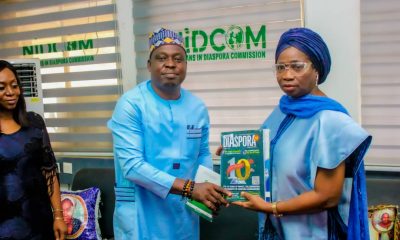

 diplomacy3 semaines ago
diplomacy3 semaines ago
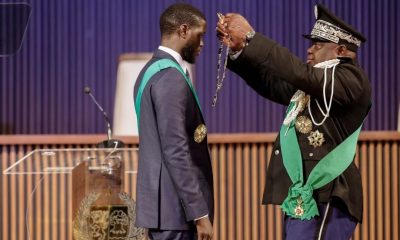

 News2 semaines ago
News2 semaines ago


 News2 semaines ago
News2 semaines ago
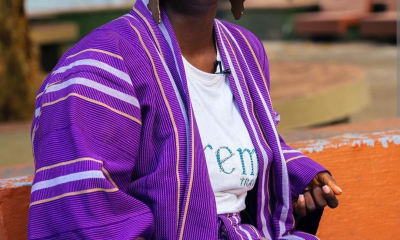

 News1 semaine ago
News1 semaine ago


 Features4 jours ago
Features4 jours ago



